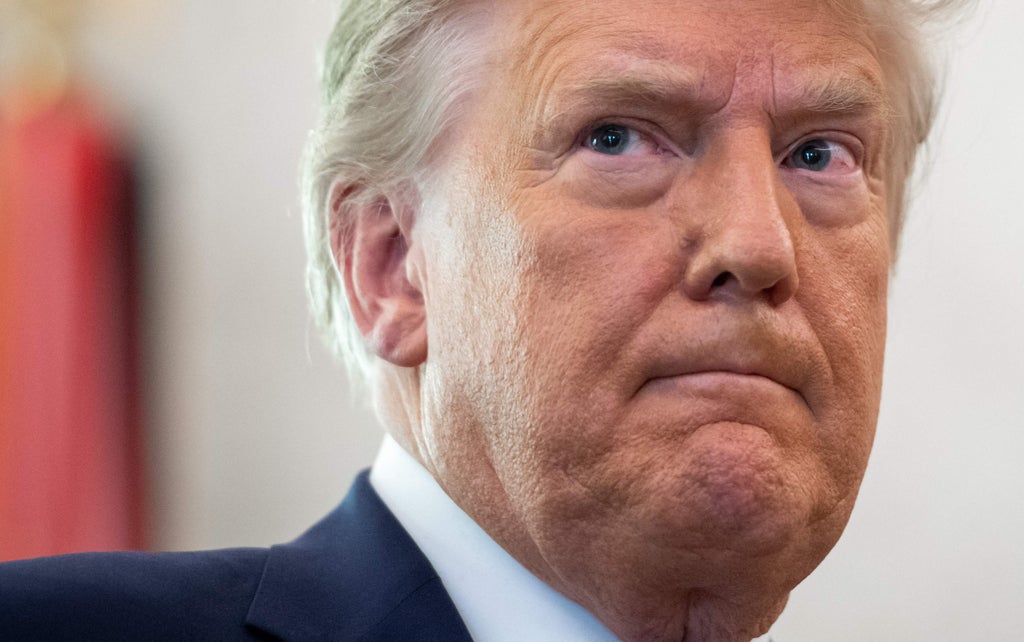
A New York State judge has rejected a sworn statement offered by former president Donald Trump claiming he does not possess documents the New York Attorney General's office has subpoenaed as part of its long-running probe into whether his eponymous real estate company committed fraud by undervaluing properties for tax purposes.
On Monday, Judge Arthur Engoron ordered Mr Trump to pay a $10,000 per day fine after finding he was in contempt of court for not turning over documents sought by Attorney General Letitia James as part of the civil investigation, which is separate from the criminal probe that has resulted in the Trump Organization and its longtime chief financial officer, Allen Weisselberg, facing criminal charges.
Two days later, Mr Trump filed a sworn statement stating that searches for the documents had been conducted in an attempt to "purge" the contempt and avoid the $10,000 per day fine, but Judge Engoron rejected the filing in a two-page order, calling Mr Trump's declaration "completely devoid of any useful detail".
"Notably, it fails to state where he kept his files, how his files were stored in the regular course of business, who had access to such files, what, if any, the retention policy was for such files, and, importantly, where he believes such files are currently located," he wrote.
Judge Engoron also noted that the former president's statement "similarly fails to state if he turned over his personal electronic devices for imaging and searching," and ordered Mr Trump to file a further sworn statement with the court detailing those facts.
He also rejected claims by Mr Trump's attorney that discussions with the former president about the location of those documents and devices were covered by attorney-client privilege, as well as a claim by Mr Trump that Ms James' office was not being prejudiced by his failure to comply with the subpoena.
"Each day that passes without compliance further prejudices OAG, as the statutes of limitations continue to run and may result in OAG being unable to pursue certain causes of action that it otherwise would," he wrote.







